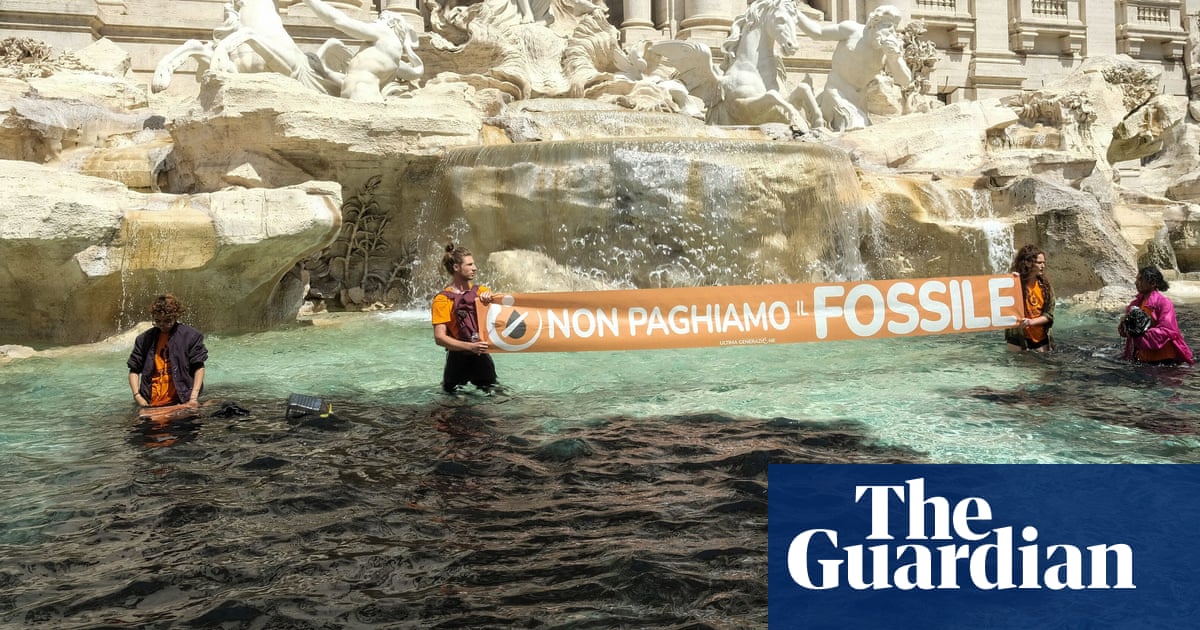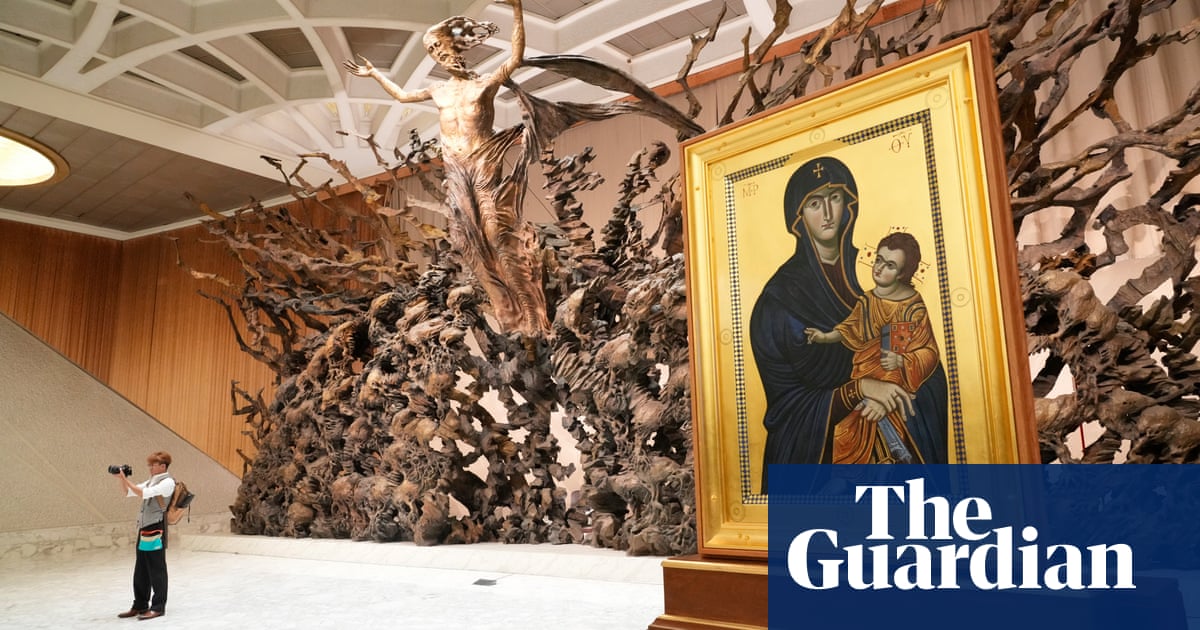
The coronavirus stopped tradition of throwing coins into the fountain
Used to raise nearly $1.7 million every year for charities
ROME: Many visitors to Rome will have tossed a coin over their shoulder into the Trevi Fountain, as legend has it that this means one day they will return to the Eternal City — and find love and good fortune.
Thousands of visitors used to do that every day and night at this 17th-century masterpiece, one of the best-known landmarks in Rome alongside the Colosseum and St. Peter’s Basilica.
The coronavirus stopped that, nobody knows for how long. And that is at the expense of the poor in Rome who were receiving that money — nearly $1.7 million every year — through a charity that helps the many homeless and vulnerable in the city.
The tradition of tossing coins into this magnificent white marble fountain, designed by Gian Lorenzo Bernini and set like a precious gem between the palaces of the city center, gained worldwide popularity after the release of the 1954 romantic comedy “Three Coins in the Fountain.”
But the tradition started long before the popular American film was made. Originally, it was said that a thirst-quenching glass of water from the Trevi Fountain would ensure good fortune and a quick return to the Eternal City.
According to legend, tossing one coin into the Trevi Fountain means that you will return to Rome; tossing two coins means you’ll return and fall in love. And tossing three coins means you’ll return, find love and marry.
Luck or no luck, the money tourists throw into the fountain all goes to a good cause. It is collected every Monday from the monument during the cleaning of the fountain and then given to Caritas, a Catholic charity, which uses it to support soup kitchens, shelters and any other efforts that help Rome’s poverty-stricken communities, which are mostly composed of immigrants.
The national lockdown declared by the national government against the coronavirus infection stopped tourists visiting Rome.
As a result, in the past 20 days Caritas has lost nearly €190,000 ($210,000) from the “treasure” that is usually obtained from the Trevi Fountain.
“That money is gone with the tourists. And right now it would have been more useful than ever as poverty increases,” said Don Benoni Ambarus, the director of Caritas.
This is one of the many side-effects of the pandemic. If it continues like this until December, there could be more than €1 million less available for the charity. “Ours is not an alarm as at the moment there are many worse dramatic situations to face, but we have to think about it. For the moment we are holding on, compensating the loss from the Trevi Fountain with a fundraising campaign we launched a few days ago,” the priest told Arab News.
The poor people of Rome need the coins from the Trevi Fountain.
Revenue from the fountain funds five “emporiums of solidarity” — supermarkets in districts of the city allowing about 2,000 of the most needy families to shop for free.
The coins fund a hostel offering 60 beds and 180 meals a day to the homeless. They also fund the repatriation of the bodies of migrants, and expenses for those who cannot afford funerals.
“Now we are stuck,” the priest said. “Our hope is that the fountain will once again be full of coins soon. Not only because poor people need those coins but also because having the tourists able to throw coins again would be a gesture of normality, that would mean that this city is back to its normal life.”
Across the nation, the government is concerned about the effects that the coronavirus may have on levels of poverty and social unrest for those who cannot make enough money to buy food at the supermarket.
Due to the lockdown to contain the infection and the shutdown of non-essential factories and businesses, many Italian citizens have seen a sharp decrease in their incomes. Although soup kitchens and shelters in Rome remain open, the informal systems of support, such as spare change dropped in a cup or supplying a free breakfast pastry, no longer exist.
The closure of bars and restaurants has cut off access to washrooms. Major problems are expected, especially in the south of Italy where the informal economy plays a large role and income has historically been lower.
After an alarming report from the Italian agency for homeland security warning of the “concrete possibility” of people breaking into shops and supermarkets to get food, Prime Minister Giuseppe Conte announced that mayors will soon be able to issue vouchers for food shopping to help low-income people cope with the economic consequences of the coronavirus.
Using an initial €400 million fund, and with an advance payment of €4.3 billion, the central government wants to help the poorest sections of Italian society. Local municipalities will have to use this fund to buy food, medicines and other essential goods for citizens with low incomes.
When it happens, the return of tourists, and coins, to the Trevi Fountain will be a welcome sign that the fortunes of the needy in Rome and Italy are looking up.












